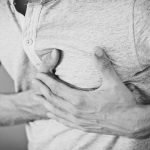This lung disease may increase heart disease risk
Scientists from Haukeland University found that patients with chronic obstructive pulmonary disease (COPD) are more likely to have coronary heart disease (CHD).
The research is...
Prediabetes may increase your heart attack risk
Scientists from Mercy Catholic Medical Center found that young adults diagnosed with prediabetes may be more likely to be hospitalized for heart attacks than...
Artery stiffness may predict your risk of type 2 diabetes better
Scientists from Beijing Tiantan Hospital found that arterial stiffness was a better predictor of future risk of Type 2 diabetes than blood pressure.
They found...
Allergy, asthma may increase your risk of heart disease
Scientists from Brigham and Women's Hospital found how allergic asthma and other associated allergies may be risk factors for heart disease and how medications...
These herb supplements may harm your heart rate
Herbal supplements may be natural, but that does not mean they are always safe.
Scientists from the University Hospital of Geneva reported a patient who...
This diet could benefit your blood vessels, heart health
Scientists from Tel Aviv-Sourasky Medical Center found key nutrients, including protein, zinc and niacin, could help improve blood vessel and heart health.
The research was...
Unvaccinated people with heart disease 9 times more likely to die in COVID-19
Scientists from the Queen Mary University of London found that unvaccinated people with high blood pressure, diabetes, or major heart damage are up to...
Eating 100g of cranberries daily can boost your heart health
Scientists from King's College London found daily eating cranberries for one-month improved heart function in healthy men.
The research is published in Food & Function...
COVID-19 vaccine technique may help treat heart disease
Scientists from the University Medical Center Utrecht found that a method for delivering genetic material to the body is being tested as a way...
How to control your heart health numbers
It is important to keep track of how much you exercise, your blood pressure, your weight, and your cholesterol numbers as ways to meet...










